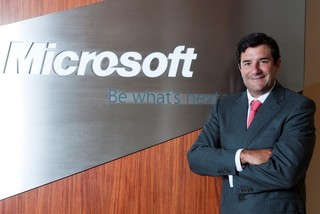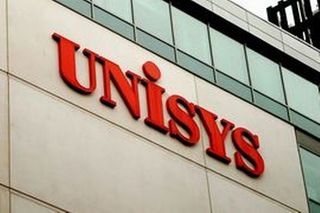Microsoft's undeclared patent claims on Sender ID technology is holding up adoption of the e-mail authentication specification
Published:
14 September 2004 y., Tuesday
Microsoft's undeclared patent claims on Sender ID technology is holding up adoption of the e-mail authentication specification, and it's not clear when the issue will be resolved.
The MTA Authorization Records in DNS (MARID) working group was supposed to conclude its discussion of Sender ID Friday and send it to the next stage of the Internet Engineering Task Force (IETF) standards adoption. But an e-mail from one of the chairmen over the weekend put an end to that.
Andrew Newton outlined four areas where some form of consensus within the community has been reached in regards to Sender ID so far: DNS name prefix, Sender Policy Framework (SPF)-specific record types, support for multiple authentication schemes and patent claims. But no mention was made as to when a final draft for Sender ID will move forward for adoption as a proposed standard.
Microsoft's patent claim centers on the combined use of two Internet drafts: draft-ietf-marid-core-03 (Sender ID) and draft-ietf-marid-pra-00 (the Purported Responsible Address [PRA] algorithm developed by Microsoft). The open source community says the license agreement protecting those patents violate the GPL (define). So to try and accommodate the needs of the open source community while still keeping Sender ID alive as a viable technology, Newton and Marshall Rose, the other MARID co-chair, floated a compromise measure to separate the PRA algorithm from Sender ID last week.
It's a compromise that lets those comfortable with Microsoft's license agreement continue to use Sender ID with the PRA check, while letting others develop their own authentication scheme for e-mails and still be able to use the core Sender ID specification.
Unfortunately, because of the unspecified nature of the patents, MARID working group members still weren't convinced that removing the algorithm would completely absolve users from the necessity of signing a license agreement. Also, deciding which authentication "check" to use caused a gridlock on any decision supporting the compromise.
Šaltinis:
internetnews.com
Copying, publishing, announcing any information from the News.lt portal without written permission of News.lt editorial office is prohibited.
The most popular articles
Software company announced new structure_ of it_s business.
more »
 The electronic vignette system in the Slovak Republic has become unique in the world thanks to the speed of implementation and increase in the revenues from the collection carried out by SkyToll a.s. on behalf of the Slovak government.
more »
The electronic vignette system in the Slovak Republic has become unique in the world thanks to the speed of implementation and increase in the revenues from the collection carried out by SkyToll a.s. on behalf of the Slovak government.
more »
 Unisys has promoted Perla Do Amral to a key leadership role, becoming director of service desk operations for the U.S.-based IT company’s managed services centers in Latin America.
more »
Unisys has promoted Perla Do Amral to a key leadership role, becoming director of service desk operations for the U.S.-based IT company’s managed services centers in Latin America.
more »
 Cesar Cernuda is a Microsoft veteran of 19 years, and has served in several senior leadership positions for Microsoft Business Solutions, including overseeing Microsoft’s ERP and CRM business worldwide.
more »
Cesar Cernuda is a Microsoft veteran of 19 years, and has served in several senior leadership positions for Microsoft Business Solutions, including overseeing Microsoft’s ERP and CRM business worldwide.
more »
 Unisys received a contract from NASA Langley Research Center (LaRC) to continue to deliver advanced hardware, software, and systems integration for flight simulation projects at the agency.
more »
Unisys received a contract from NASA Langley Research Center (LaRC) to continue to deliver advanced hardware, software, and systems integration for flight simulation projects at the agency.
more »
 Unisys Corporation reported third quarter 2015 results.
more »
Unisys Corporation reported third quarter 2015 results.
more »
 On the 10th–15th, this September, RAI Exhibition and Congress Centre in Amsterdam will hold the 48th international exhibition-conference dedicated to electronic media and entertainment industry IBC 2015.
more »
On the 10th–15th, this September, RAI Exhibition and Congress Centre in Amsterdam will hold the 48th international exhibition-conference dedicated to electronic media and entertainment industry IBC 2015.
more »
 Unisys Corporation announced the completion of the initial phase of testing of a facial recognition system at Dulles International Airport, Virginia, to help Customs and Border Protection (CBP) to identify imposters attempting to enter the United States using passports that are fraudulent or do not belong to them.
more »
Unisys Corporation announced the completion of the initial phase of testing of a facial recognition system at Dulles International Airport, Virginia, to help Customs and Border Protection (CBP) to identify imposters attempting to enter the United States using passports that are fraudulent or do not belong to them.
more »
 Television was invented back in 1884, when German Paul Gottlieb Nipkow came up with the idea to scan images using a rotating metal disc with a spiral pattern of holes in it. When the disc was spinning, each hole would scan one brightly lit line of the image.
more »
Television was invented back in 1884, when German Paul Gottlieb Nipkow came up with the idea to scan images using a rotating metal disc with a spiral pattern of holes in it. When the disc was spinning, each hole would scan one brightly lit line of the image.
more »
 SuperCom, a leading provider of secure solutions for e-Government, Public Safety, HealthCare, and Finance sectors, announced its results for the quarter ended March 31, 2015.
more »
SuperCom, a leading provider of secure solutions for e-Government, Public Safety, HealthCare, and Finance sectors, announced its results for the quarter ended March 31, 2015.
more »
 Unisys Corporation today announced that Tom Patterson has joined the company as vice president for global security solutions, responsible for leading Unisys' security solutions business worldwide.
more »
Unisys Corporation today announced that Tom Patterson has joined the company as vice president for global security solutions, responsible for leading Unisys' security solutions business worldwide.
more »